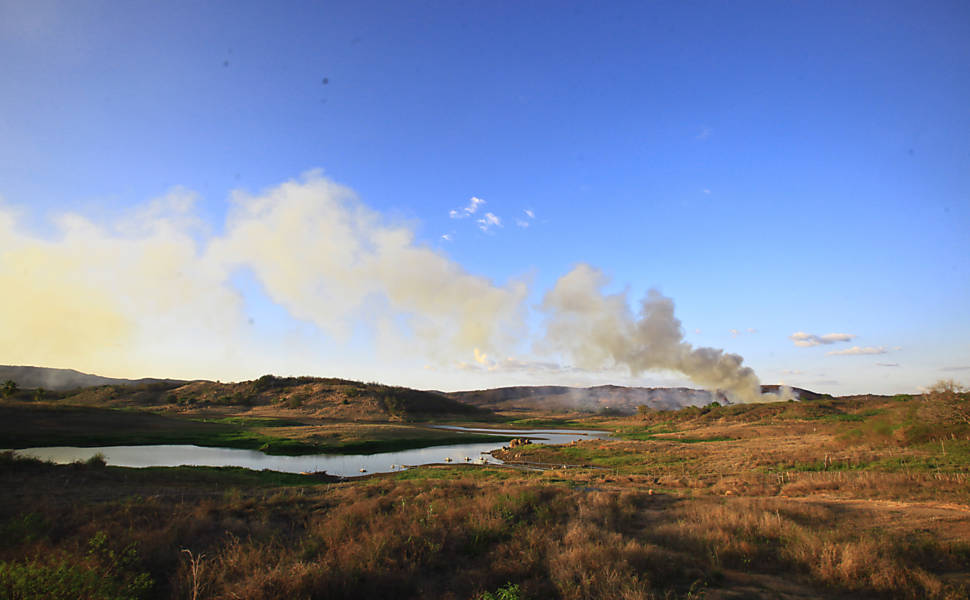Latest Photo Galleries
Brazilian Markets
17h31 Bovespa |
+0,35% | 125.573 |
16h43 Gold |
0,00% | 117 |
17h00 Dollar |
-0,57% | 5,1692 |
16h30 Euro |
+0,49% | 2,65250 |
ADVERTISING
Brazilian Government Admits Need for Energy Rationing if Reservoirs Reach 10% Mark
01/23/2015 - 09h06
Advertising
LUCAS VETTORAZZO
PEDRO SOARES
FROM RIO
In the same week he said "God is Brazilian" and that there was no risk the country would run out of energy, Brazilian Mines and Energy Minister Eduardo Braga admitted for the first time on Thursday, January 22nd, that the government might have to start rationing energy if the volume of water in reservoirs reach the so called "prudential" level, established at 10%.
According to Braga, this limit symbolizes the decree of rationing and the kick-off to an energy saving campaign.
"If the level remains as today's we will have enough power to keep the country going. It is obvious that, if there is shortage of water, if the prudence level is reached, then we will be facing a situation that has never been predicted in any modelling."
According to Braga, the 10% is the established minimum for the functioning of a hydroelectric. "From then on we would have serious problems, but we are far from that."
In the most recent report published by the ONS (Brazil's National Operator of the Power Grid), reservoirs in the Southeast/Midwest of Brazil - the country's central pillars of hydropower generation - are working at 17.43% of their capacity.
The Northeastern part of Brazil is at 17.18% and the Northern region is working at 35.2%. Only the South shows better indicators, at 67.17%.
"Of course we will take a prudential measure if we have to", the Minister said.
He did not explain whether measures will be taken if reservoirs in the Southeast/Midwest reach this level, or whether the restriction would be imposed if there were problems reported in the Northeast, for instance.
In the afternoon, Braga met with the Brazilian government's Chief of Staff Aloizio Mercadante to discuss the matter.
"We are also very much worried with the hydropower situation. Tomorrow [Friday] we will have a meeting with the Chief of Staff and the ANA [National Agency for Water], the Environment Ministry as well as the Science and Technology Ministry, amongst others, because the water level has reached extremely low levels across many regions", he said.
ARGENTINA'S ENERGY
Brazil has continued importing power from Argentina in order to stand up to the intense consumption in the country.
On Wednesday, January 21st, for the second day in a roll, a power charge from the neighboring country was sent through an interconnection in the state of Rio Grande do Sul.
On Tuesday, January 20th, one day after the blackout that affected 11 states as well as the Brazilian capital, the ONS authorized the power transfer.
It was the first time that Dilma Rousseff's government used an agreement with Argentina, signed in 2006, designed to be put into place in emergency situations.
The operation does not involve cash payments. It will be paid with energy in the future, as part of a system of loans and payments.
Translated by CRISTIANE COSTA LIMA




